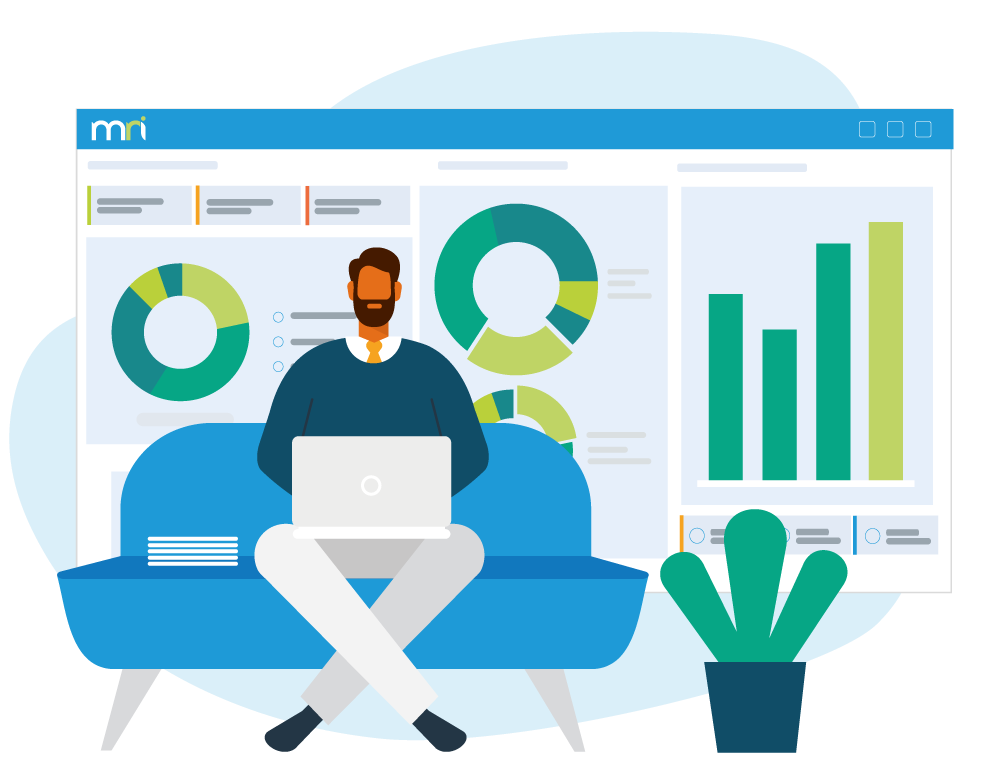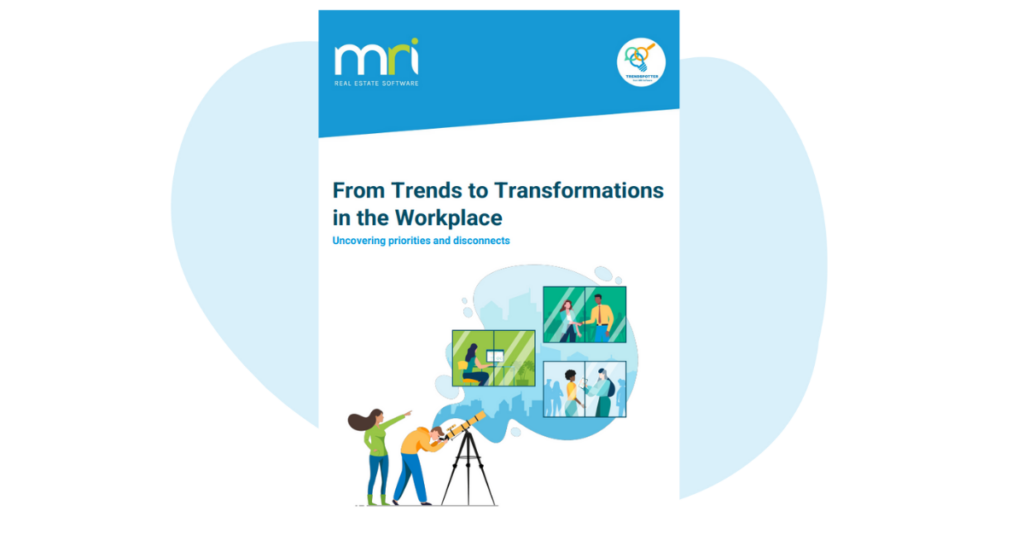How to use an IWMS software
Organisations looking to remain competitive need to ensure that their operations are efficient and streamlined, in order to cut extraneous costs, and provide a fast, reliable service.
Leveraging management software solutions has proved to be successful for many organisations. However, implementing multiple different solutions for various tasks can hinder more than help, by requiring operators to input the same data several times, requiring numerous logins and interfaces, and opening up more opportunities for errors, or inaccurate data entry to cause problems in your business.

To enable organisations to benefit from the technology available while ensuring a joined up, integrated operation across all solutions, IWMS software combines multiple functionalities into one single, comprehensive platform, offering a centralised database, and clear interface.
In this blog, you will learn how to utilise Integrated Workplace Management System (IWMS) software to optimise facilities management tasks in your business.
Choosing the right IWMS solution
To reap the benefits of IWMS software, it’s important to select the product that is best suited to your business, your team, and your goals.
Some important features to consider include:
Modularity – choosing a solution, such as an extensible IWMS, that allows you to pick and choose which functionalities you want to implement, means you are able to create a solution that delivers a strong ROI, and avoid paying for functions or tools unnecessary to your operations.
Futureproof – selecting and implementing a new IWMS system can be a lengthy and complex process, so it’s important to select an IWMS solution that will stand the test of time, and offer capacity for business growth. Ensure the solution is able to receive updates easily, and that the provider is committed to continued product development.
Cloud-based – As working environments and patterns change, it’s important that your IWMS solution is accessible via the cloud, ensuring that team members can work remotely, during on-site visits, and from home.
Integrations with third party solutions – an IWMS should allow for integration with, if not all, then the majority of your tech stack. A solution that restricts you to particular products is unlikely to meet your needs in the long term.
Service – Ensure your provider is able to deliver dedicated support, and are known to provide seamless implementation, and continuous training experiences to ensure your team are able to use the solution to its full potential.
Who uses IWMS software?
Facilities managers (FMs)
Thanks to the proactive maintenance features of an effective IWMS, facilities managers are able to develop more efficient and effective workflows. FMs use IWMS solutions to control building access, and manage preventative and ad hoc maintenance, through the creation of customisable processes that ensure fast responses to faults, reduce errors, and produce standardised, optimised workflows. Asset lifespan management tools ensure FMs can forecast expenses, and minimise the cost of ownership and operation.
Commercial real estate managers
Commercial real estate managers need to have a full view of its lease portfolio and be able to review and fufil lease commitments, as well as keep track and calculate rent and service charges. An IWMS provides the functionality to simplify the complexity of lease management helping to easily leverage key leasing information, save on costs, and maintain regulatory compliance.
Commercial real estate managers also utilise space and workplace management features to create, measure, and optimise the hybrid workplace. Features such as space layout modeling tools, contact free sign in/out capabilities, presence monitoring, and hot desk and meeting room booking functions enable proactive management of safety and efficiency in the work environment.
Sustainability directors
An effective IWMS can facilitate progress towards business ESG targets, as well as enable sustainability directors to reduce energy costs, measure and minimise organisational impact on the environment, while managing and improving long-term workplace health and occupant wellbeing.
How can you use IWMS software?
IWMS software is used by corporate real estate and facilities teams to oversee the crucial aspects of lease portfolio management (i.e. administration, accounting, abstraction, etc.), review and optimise the available workspace, manage employee, contractor, and visitor presence, and stay connected with its facilities and maintenance management tools.
Designed as an all-in-one solution to a range of operations, IWMS software can be used to streamline and improve the effectiveness of a plethora of workflows:
Manage your lease portfolio
Lease administration tools facilitate the smooth and accurate management of leases, helping to make cost savings, while minimising the risk of issues caused by inaccurate data, and inadequate analysis.
By consolidating a business’s entire lease portfolio onto a single platform, an effective IWMS solution enables teams to track and accurately calculate rent and service charges easily, while integrated lease accounting tools simplify compliance with core accounting and financial reporting regulations.
AI-driven tools abstract lease data to create a comprehensive audit trail, and support decision making via the provision of accurate and verified data, analysis, and insights.
Optimise space management and resource allocation
In an increasingly flexible workplace, where hybrid working and hot desking are becoming commonplace, insights from workspace usage data can enable workplace managers to make informed decisions around space usage, measurement, and optimisation to maximise occupancy.
With an IWMS solution, teams can use up-to-date, actionable data captured from across an organisation’s portfolio to identify space underutilisation, reduce costs, and achieve a more efficient use of space. With a central space inventory, organisations can strategise available space, model floor layouts, and draw up seating charts to identify the most effective workspace configurations.
Employee experience can be enhanced through the implementation of simplified, and intuitive desk and meeting room booking features. Options to meet employees’ needs such as app-based bookings for workspaces, sign-in pads for meeting rooms, and detection sensors for desks, streamline the booking process for employees, and promotes a thriving and organised workplace.
Improve people presence management
Tracking and monitoring people presence on-site is important for the safety of visitors and employees, the security of restricted spaces, and the safe execution of emergency evacuation procedures.
With an IWMS solution, organisations can manage contractor attendance, monitor hazard notice compliance, and manage inductions across multiple facilities, plus manage access permissions, with no-touch sign-in functionality.
Proactive facilities management
With an effective IWMS solution, facilities managers can gain a full overview of assets across portfolios, capture data from appliances and utilities, and improve efficiency throughout an assets’ lifespan.
With BIM and IoT modeling, decision making can be supported by up to date, accurate data, while financial reporting and automatic calculations for job spend can aid in cutting costs, increasing profitability, and maximising productivity.
With customisable and automated workflows, both preventative and ad hoc maintenance jobs are streamlined, and comprehensive audit trails are built and maintained, to ensure easy access to maintenance and servicing histories.
Meet energy and sustainability goals
An effective IWMS solution can facilitate the meeting of ESG goals via energy data capture and analysis. Collecting usage and performance data from a variety of data sources, the IWMS software increases visibility and understanding of a company’s energy consumption, usage trends, and anomalies.
Customisable and intuitive dashboards provide at-a-glance overviews, as well as actionable insights and alerts, ensuring organisations are able to achieve energy goals, and remain compliant with sustainability-based objectives including ESG targets, Net Zero progress, and carbon reporting.
Want to learn more?
MRI Software has gone a step beyond the IWMS with our extensible workplace management solution, or as we call it – the XWMS. An open and connected solution that gives you the ability to add different aspects of the workplace system when you need them, providing total scalability.
To learn more or to arrange a demonstration, contact us today.
From Trends to Transformations in the Workplace – Uncovering Priorities and Disconnects
In partnership with CoreNet Global, MRI Software conducted a survey of real estate professionals around the world to examine emerging trends in office transformations. These insights provide a global perspective, with input from the APAC, EMEA, North…
